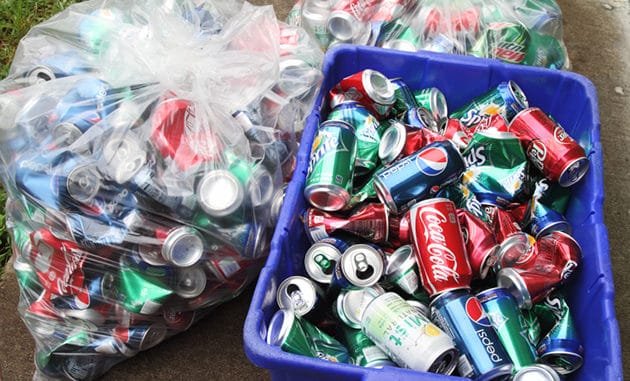
RePlanet has closed, and places to recycle containers are becoming even more rare. RePlanet closed all 284 of its centers this past week, relinquishing it’s slot as California’s largest operator of recycling redemption centers. The Ontario-based company’s President David Lawrence said the company stopped operating because of increased business costs and falling prices of recycled aluminum and PET plastic.
RePlanet laid off 750 employees this week, three years after closing 191 recycling centers and laying off 300 employees.
Susan Collins of the Culver City-based Container Recycling Institute sees this significant setback to the state’s container deposit system as a call to action. “Many people are calling the Governor and CalRecycle to complain. This problem isn’t a failure of the economy or the marketplace; this crisis is due to a series of failures by our politicians and state government to address it.”
Consumer Watchdog, a nonprofit that studies issues in California’s recycling industry, estimated that more than 40% of redemption centers have closed in the last five years. This leaves consumers getting back only about half of their deposits on bottles and cans.
It also means more bottles and cans will end up in landfills. People will either throw their recyclables directly into the garbage or place them in curbside recycling bins, which are often filled with contaminated material that must be discarded.
It also means the people who rely on recycling to provide income are going to have an even harder time trying to make ends meet.
According to CalRecycle, in fiscal year 2017-18, Californians lost out on $308 million in unredeemed deposits – an all-time high for the state.
The Container Recycling Institute notes “this situation was entirely preventable.”
Since the initial contraction and downsizing of RePlanet three years ago, the CRI has repeatedly drawn attention to the dire consequences caused by inadequate processing payments from CalRecycle, the state agency that administers and provides oversight for recycling programs.
These underpayments that have prevented a significant number of centers from staying in business. The current climate also has to deal with historically low scrap prices and minimum wage increases for employees, creating a squeeze almost as audible as a foot crushing an aluminum can into complete compression.
More than half of the state’s nearly 2,600 centers in operation in 2013 have since closed, and California’s recycling rate has dropped 10 percentage points (from 85% to 75% for all beverage containers combined).
While California strives to be “best-in-class” on environmental issues – from addressing our climate crisis to keeping plastic out of our oceans – the state’s bottle bill actually remains one of the most inconvenient in the world.
There are more than 50 container deposit programs across the globe, but only California employs a payment system that imparts such high levels of financial risk and uncertain and inadequate payments. Because other systems don’t have these flaws, none of them would allow – as California’s law has – one-fifth of their redemption locations to close in one week (part of over one-half during the last five years), with no realistic backup plan in place.
Collins kept the focus on the political solution, offering “Now is the time for Gov. Gavin Newsom to work with the state legislature and the California Department of Resources Recycling and Recovery (CalRecycle) to overhaul the bottle bill, which historically has resulted in the recycling of more than 50 million beverage containers daily – 20% of the nationwide total – in the process saving enough energy each year to power the equivalent of 300,000 households.”
Judith Martin-Straw


Government at its worst. Since there was little in it for the politicians, they let it slide into oblivion. So now we continue to pay the CRV, $.10 for a 16.9 oz bottle. Where do we go to get that money governor?